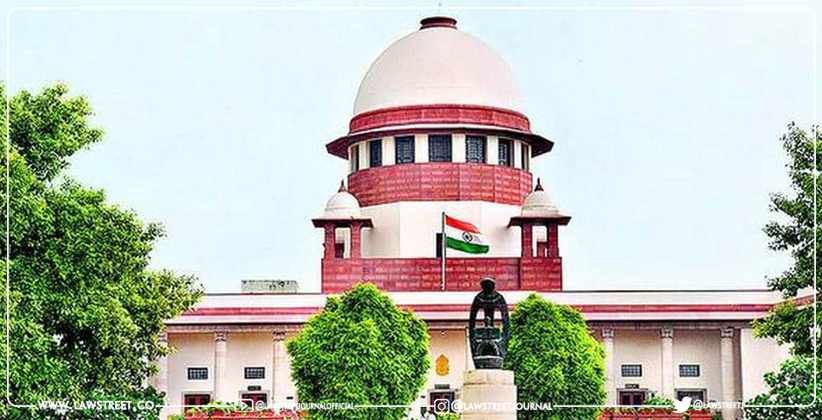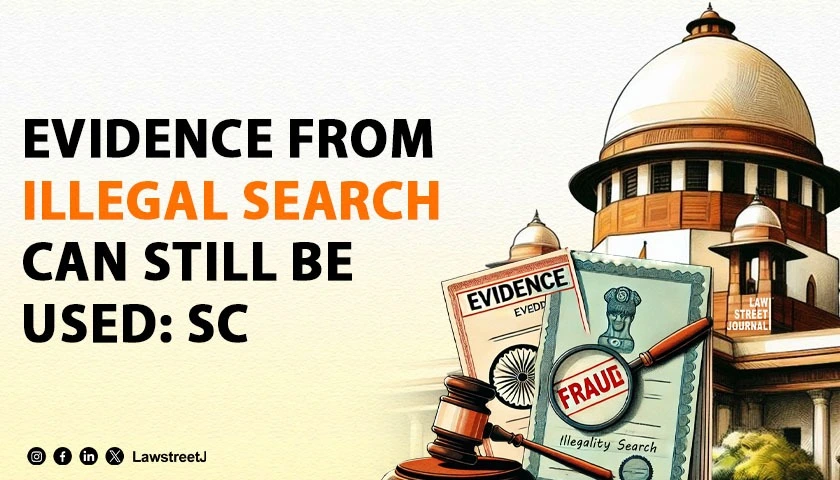The Supreme Court has observed that a society registered under the Societies Registration Act,1860 is entitled to sue and be sued, only in terms of its byelaws.
A Society registered under the Society Registration Act is entitled to sue and be sued , only in terms of its bye laws . The Bye laws may authorise the president or secretary or any other office bearer to institute or defend a suit for and on behalf of the society.
Under section 6 of the Societies Registration Act , 1860, every society registered under the Act may sue or be sued in the name of President , Chairman , or Principal Secretary or trustees, as shall be determined by the rules and regulations of the society , and in default of such determination, in the name of such person shall be appointed by the governing body for the occasion.
Therefore , unless the plaintiff in a suit which claims to be a society , demonstrates that it is a registered entity and that the person who signed and verified the pleadings was authorised by the byelaws to do so , the suit cannot be entertained . The fact that the plaintiff in a suit happens to be local unit or sakha unit of registered society is of no consequence , unless the bye -laws support the institution of such suit.
A Bench comprising Justice Hemant Gupta and Justice V Ramasubramanian therefore observed that unless the plaintiff in a suit which claims to be a society, demonstrates that it is a registered entity and that the person who signed and verifed the pleadings was authorised by the byelaws to do so, the suit cannot be entertained.
A society registered under the Societies Registration Act, 1860 is entitled to sue and be sued, only in terms of its byelaws.
"...unless the plaintiff in a suit which claims to be a society, demonstrates that it is a registered entity and that the person who signed and veried the pleadings was authorised by the byelaws to do so, the suit cannot be entertained. The fact that the plaintiff in a suit happens to be a local unit or a Sakha unit of a registered society is of no consequence, unless the byelaws support the institution of such a suit"
The Subject matter of the dispute relates to the right to management and administration of a mosque and its properties .
In this case the Waqf Tribunal , held that Mahal Committee is a legal entity , entitled to sue and be sued . This was solely on the ground that Mahal Committee was one of the Sakha units affiliated to a registered society by name Kerala Naduvathil Mujahideen .
Disagreeing with the tribunals view the Honble Bench said that the Waqf tribunal committed a gross illegality , first in not framing an issue about the status of the Mahal Committee and then in recording a finding as though the local unit of registered society which is in enjoyment of affiliated status , was entitled to sue .
The Honble bench further observed that such an illegality committed by the tribunal was liable to be corrected by the High Court under revisional jurisdiction.
The Honble Bench has therefore dismissed the civil appeal led challenging Kerala High court's judgment in two Civil Revision Petitions led under the proviso to sub section (9) of Section 83 of the Waqf Act, 1995,[1] reversing the judgment of the Waqf Tribunal and decreeing the suit of the respondents in entirety, but dismissing the appellant's suit.
Secretary P . Nazeer sought two sets of reliefs from the Waqf Tribunal
- To declare the certificate dated 24.03.2004 issued by the Chief Executive Officer of the Kerala Waqf Board in favour of Salafi Trust as null and void .
- For a permanent injunction restraining the defendants from interfering with their management and administration of the mosque and its properties .
Although , the tribunal granted the relief of the injunction ,but refused the relief of declaration . However , these three appellants did not choose to challenge the judgement of the Waqf Tribunal rejecting the relief of declaration .
Similarly , the respondents sought two sets of reliefs from the Tribunal:
- A declaration that the second respondent A.K.Babu is the Secretary of the first respondent Trust namely Salafi Trust .
- A permanent injunction restraining Shri.P. Nazeer , the secretary of the Mahal Committee from interfering with their right of management of the mosque .
Though the tribunal granted the relief of declaration , it did not grant the relief of injunction .
The High Court in its impugned order found that Mahal Committee is not a registered entity and hence not entitled to le a suit and the suit was not even led in a representative capacity after following the procedure prescribed under Order 1 Rule 8 CPC[2].
Further, the Court observed that though the challenge was to the management and administration of a mosque and its immovable properties, there was no schedule of property attached to the plaint in the suit.
It was observed that, according to the evidence on record, the Sala Trust was in charge of the mosque's management and administration. The High Court decreed the respondents' suit in its entirety and dismissed the appellants' suit in its entirety based on these findings.
The Supreme Court stated that the Mahal Committee filed no revision against the Waqf Tribunal's refusal of the relief of declaration about the certificate dated 24.03.2004 issued by the Kerala State Waqf Board's Chief Executive Officer.
While noting that the Waqf Tribunal's rejection of the prayer for declaring the said certificate null and void was fatal to the appellants' claim, the Court observed that they cannot now take umbrage with the fact that the Tribunal found them to be in management of the waqf's management and administration.
It was not open to the respondent Sala Trust to go against the statutory prescriptions and claim to be the Mutawalli once it was admitted that it was the respondent Sala Trust who got the mosque registered as a waqf under the Waqf Act and admitted that the mosque was constructed in a vacant plot demised by Sala Trust.
While observing that the High Court exercised its revisional jurisdiction correctly and justly, the Bench refused to go into each of the issues in the impugned judgement .
JUDGEMENT
Though Shri R . Basant, learned senior counsel for the appellants also invited our attention to certain other aspects in the impugned judgement , we do not think that we do not think that we need to go into each other issues when we are convinced that the High Court exercised its revisional jurisdiction correctly and justly .
Therefore the appeals are dismissed.
CASE DETAILS - P . NAZEER ETC V. SALAFI TRUST & ANR . ETC .
CITATION - CIVIL APPEAL NOs.31323133 OF 2016[3]
[1] Section 83 in The Wakf Act, 1995
83. Constitution of Tribunals, etc.
(9) No appeal shall lie against any decision or order whether interim or otherwise, given or made by the Tribunal: Provided that a High Court may, on its own motion or on the application of the Board or any person aggrieved, call for and examine the records relating to any dispute, question or other matter which has been determined by the Tribunal for the purpose of satisfying itself as to the correctness, legality or propriety of such determination and may confirm, reverse or modify such determination or pass such other order as it may think fit
[2] ORDER 1, RULE 8 CIVIL PROCEDURE CODE , 1908
8. One person may sue or defend on behalf of all in same interest.
(1) Where there are numerous persons having the same interest in one suit,-
(a) one or more of such persons may, with the permission of the Court, sue or be sued, or may defend such suit, on behalf of, or for the benefit of, all persons so interested;
(b) the Court may direct that one or more of such persons may sue or be sued, or may defend such suit, on behalf of, or for the benefit of, all persons so interested.
(2) The Court shall, in every case where a permission or direction is given under sub-rule (1), at the plaintiffs expense, give notice of the institution of the suit to all persons so interested either by personal service, or, where, by reason of the number of persons or any other cause, such service is not reasonably practicable, by public advertisement, as the Court in each case may direct.
(3) Any person on whose behalf, or for whose benefit, a suit is instituted or defended, under sub-rule (1), may apply to the Court to be made a party to such suit.
(4) No part of the claim in any such suit shall be abandoned under sub-rule (1), and no such suit shall be withdrawn under sub-rule (3), of rule 1 of Order XXIII, and no agreement, compromise or satisfaction shall be recorded in any such suit under rule 3 of that Order, unless the Court has given, at the plaintiffs expense, notice to all persons so interested in the manner specified in sub-rule (2).
(5) Where any person suing or defending in any such suit does not proceed with due diligence in the suit or defence, the Court may substitute in his place any other person having the same interest in the suit.
(6) A decree passed in a suit under this rule shall be binding on all persons on whose behalf, or for whose benefit, the suit is instituted, or defended, as the case may be.
Explanation-
For the purpose of determining whether the persons who sue or are sued, or defend, have the same interest in one suit, it is not necessary to establish that such persons have the same cause of action as the person on whom behalf, or for whose benefit, they sue or are sued, or defend the suit, as the case may be.
[3] https://main.sci.gov.in/supremecourt/2013/15532/15532_2013_11_1502_34505_Judgement_30-Mar-2022.pdf








